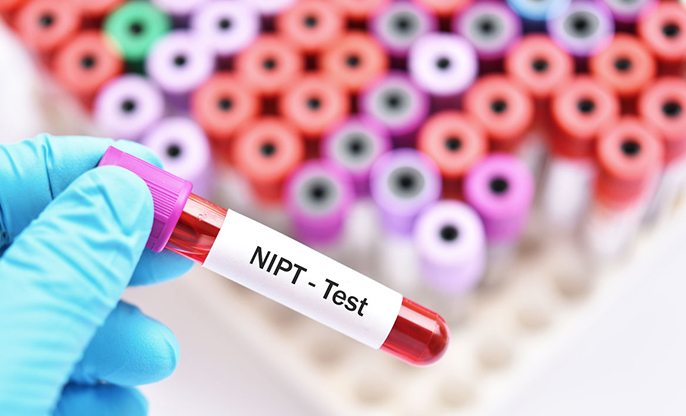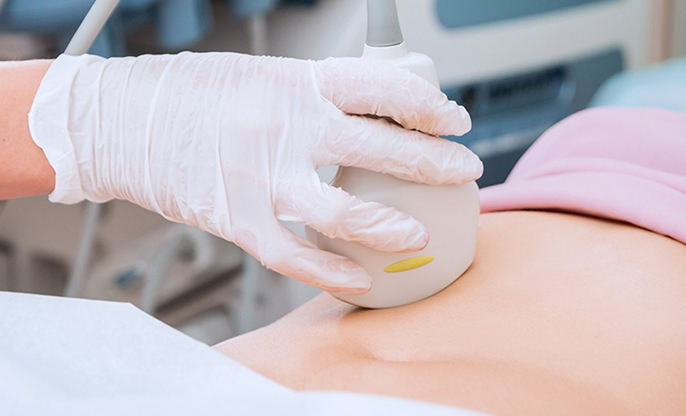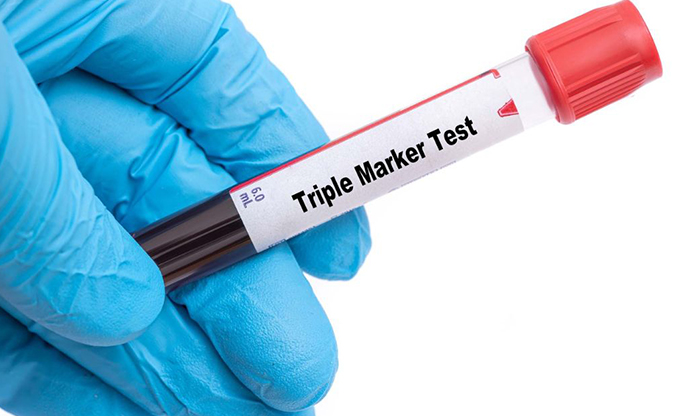
Quad test in pregnancy
Pregnancy is an exciting time for expecting mothers but also full of uncertainty and anxiety. One of the screening tests that women may be asked to take during this period is the Quad test. This test is a screening tool to detect any possible congenital disabilities in the fetus. It is typically done between 15 and 20 weeks of pregnancy and is a non-invasive procedure.
In the second trimester of pregnancy, doctors recommend the Quadruple marker blood test or the Quad test. The screening helps identify certain birth defects caused by chromosomal abnormalities in the unborn baby.
The Quad screen test helps evaluate and measure the levels of:
- Human chorionic gonadotropin
or hCG and Inhibin A- hormones produced by the placenta.
- Alpha-fetoprotein, or AFP- a
protein produced by the growing fetus.
- Estirol or Unconjugated Estriol or UE- a hormone made by the baby's placenta and liver.
The levels of these hormones in the pregnant woman's blood are measured and evaluated against standardized values to identify if the fetus faces a risk of certain congenital abnormalities.
The Quad test is just a screening tool that indicates the elevated risk of a chromosomal disability in the fetus, and it is not a diagnostic test. The risk is there, but it does not mean the fetus has a birth defect. The Quad test results show that further testing is a must to confirm the results.
Out-of-range Quad marker screen results do not guarantee a problem in the pregnancy. Rather it is a screening tool that assesses the risks and not diagnoses the problem. The fact states that if 1000 pregnant women have undergone the screening, nearly 50 will show an increased risk, but this does not mean the baby will have an open neural tube defect or Down's syndrome. It indicates that there are chances the baby may have the condition, so why not schedule an amniocentesis, ultrasound, and further testing to see if the problem is present?
The healthcare worker needs to be careful if the pregnant woman has any of the following:
- Is above 35 years of age
- Going to be 35 years when
the child is born.
- If you have tested positive
for type 1 diabetes before pregnancy.
- There is a history of
congenital complications and birth defects in the family.
- If you have had a congenital disability in a previous pregnancy.
In these cases, it is better to undergo screening and assess the fetus. The risks include a baby born with open neural tube defects, Down's syndrome, Trisome 18, or Smith-Lemli-Optiz syndrome (SLOS).
The prenatal period needs critical care. Thus, many countries have recommended the Quad test as a part of routine prenatal care to ensure a healthy pregnancy. But, before you undergo this prenatal screening, it is better to dispel all the doubts you fear. Clear the questions from your doctor before you schedule it and dismiss your concerns.
As a mother, you need to ensure your child stays safe and gets the Quadruple screen test to check the baby's chances for potential congenital disabilities in the 15th to 22nd week of pregnancy. Understanding the purpose of the test and the potential risks and benefits can help you make an informed decision about whether to take the test.







